Journey Towards Climate-Resilient Development
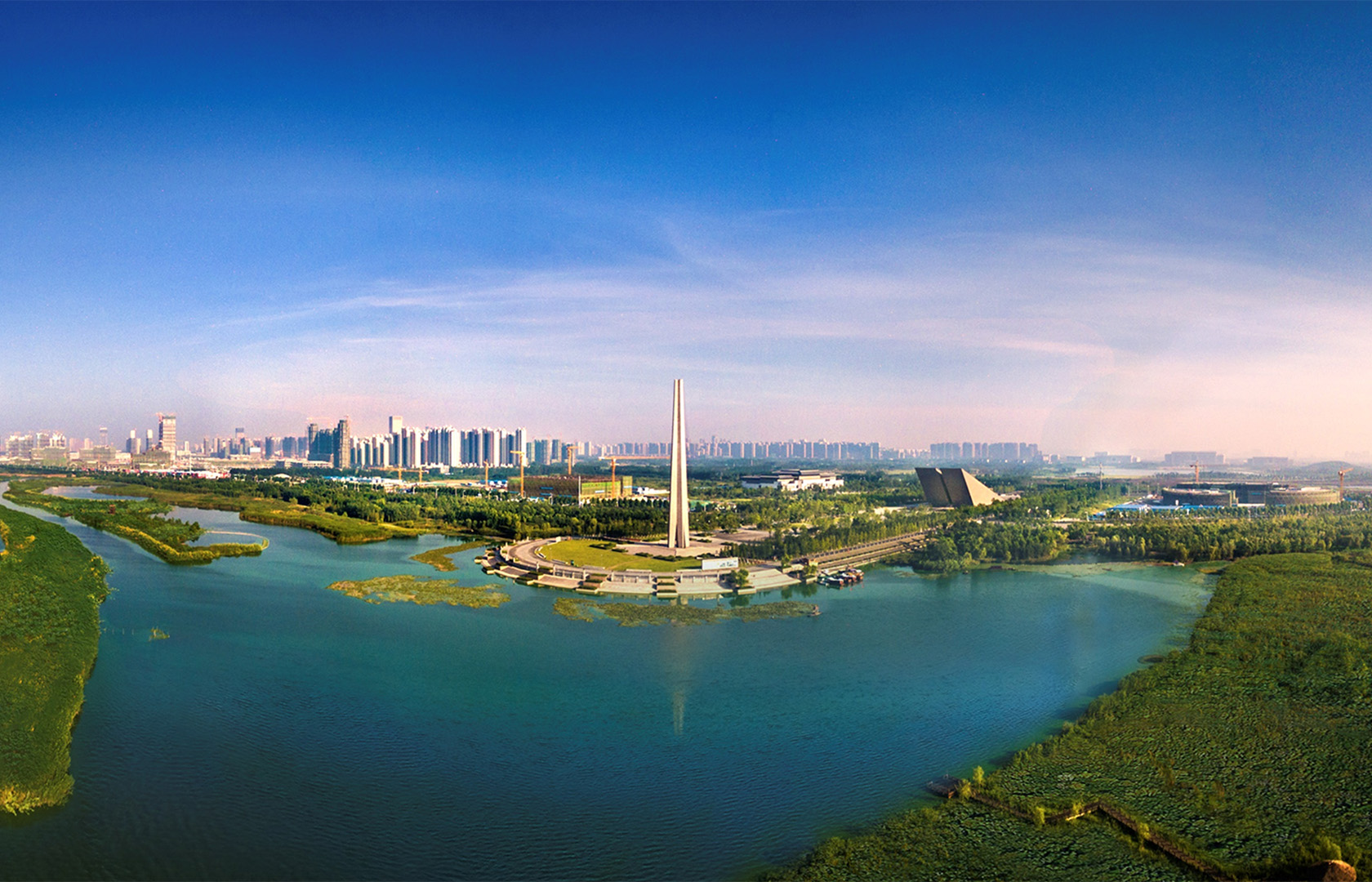

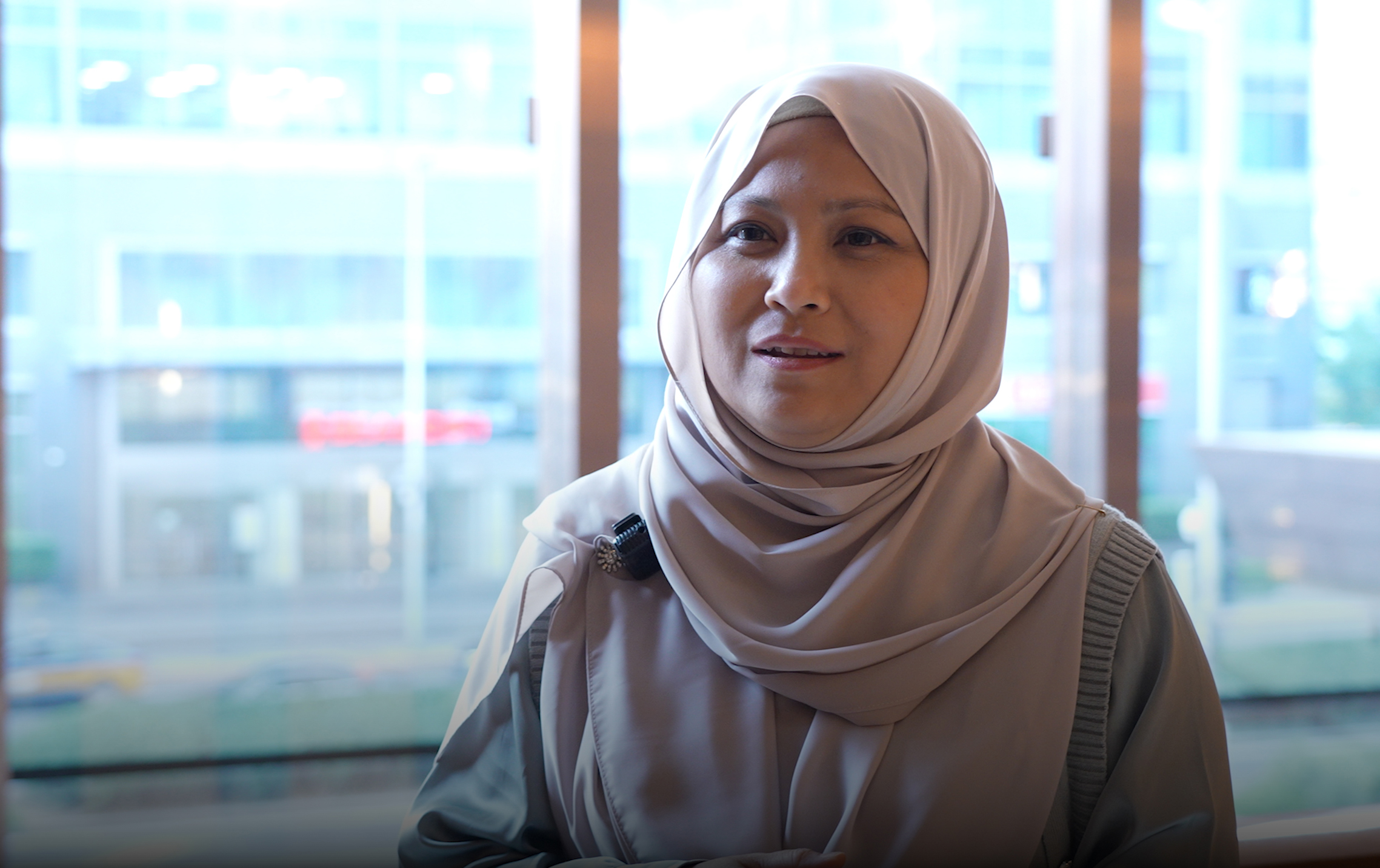

Ikram Ul Haque Qureshi of Pakistan’s IT Ministry outlines a strategic roadmap for a Digital Nation. He discusses the impact of the AI Policy 2025 and the importance of creating a competitive market over long-term subsidies. By implementing robust cybersecurity laws and learning from global leaders like the People’s Republic of China, Pakistan aims to harness AI for critical sectors—including disaster prediction and smart agriculture—to drive economic growth and consumer benefits. Watch to learn how these new regulations will shape the country’s technological landscape.
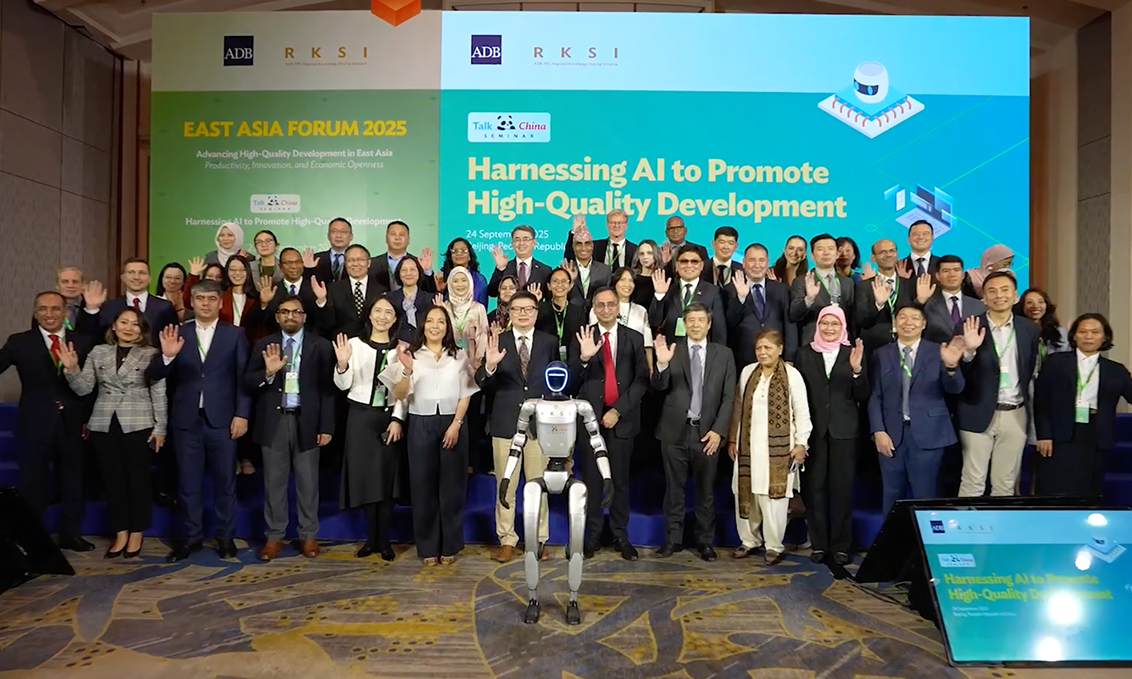


Speakers and presenting participants of the regional workshop, “Driving Change: Lessons from Breakthroughs in Innovative and Sustainable Finance in the PRC,” held in Beijing. The photo includes experts from the People’s Republic of China and representatives from Azerbaijan, Georgia, Indonesia, Mongolia, the Philippines, Thailand, Uzbekistan, and Viet Nam, who shared experiences and insights on advancing sustainable finance.
BEIJING, PEOPLE’S REPUBLIC OF CHINA (23-24 October 2025) – The two-day regional workshop, Driving Change: Lessons from Breakthroughs in Innovative and Sustainable Finance in the PRC, brought together participants from Azerbaijan, Georgia, Indonesia, Mongolia, the Philippines, Thailand, Uzbekistan, Viet Nam, and the People’s Republic of China. Organized by the Asian Development Bank (ADB) in Beijing, the event convened government officials, regulators, and financial institutions to exchange practical experiences in advancing green and transition finance.
Across eight sessions, participants discussed China’s experience in developing policy frameworks, taxonomies, and innovative financial instruments such as sustainability-linked loans and transition finance. They also examined disclosure practices, digital tools, and sectoral approaches—including agriculture and manufacturing—that can inform strategies in other countries.
Participants learned from China’s pioneering pilots and shared their own policy and market experiences, offering perspectives on how sustainable finance principles can be adapted to different economic contexts. Discussions underscored three key messages: credibility and clear standards are essential to build investor trust, solutions must reflect each country’s unique realities, and regional collaboration can help scale successful innovations.
The workshop concluded with a shared recognition that sustained cooperation and knowledge exchange are critical to accelerating the region’s transition toward sustainable and inclusive growth.
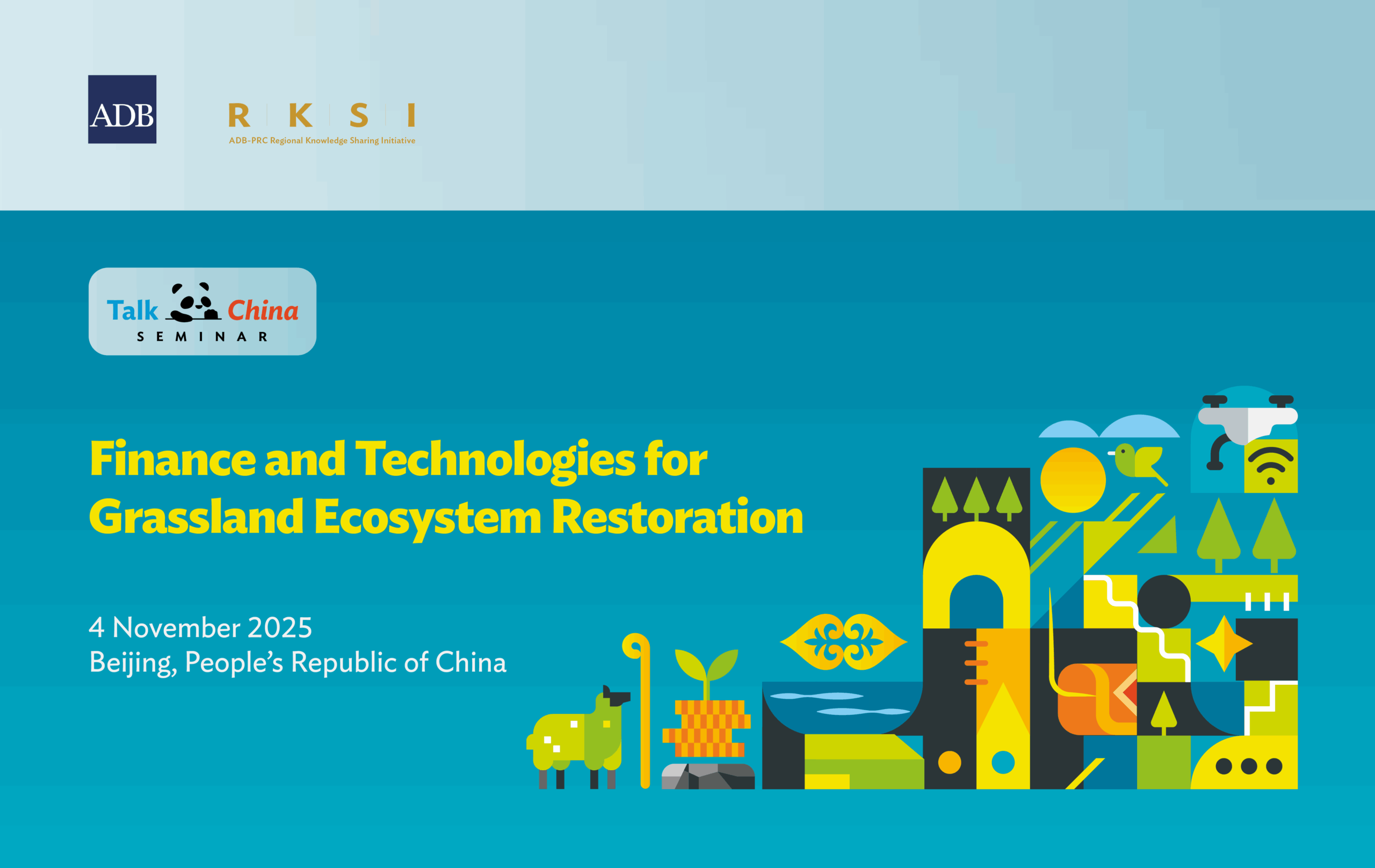
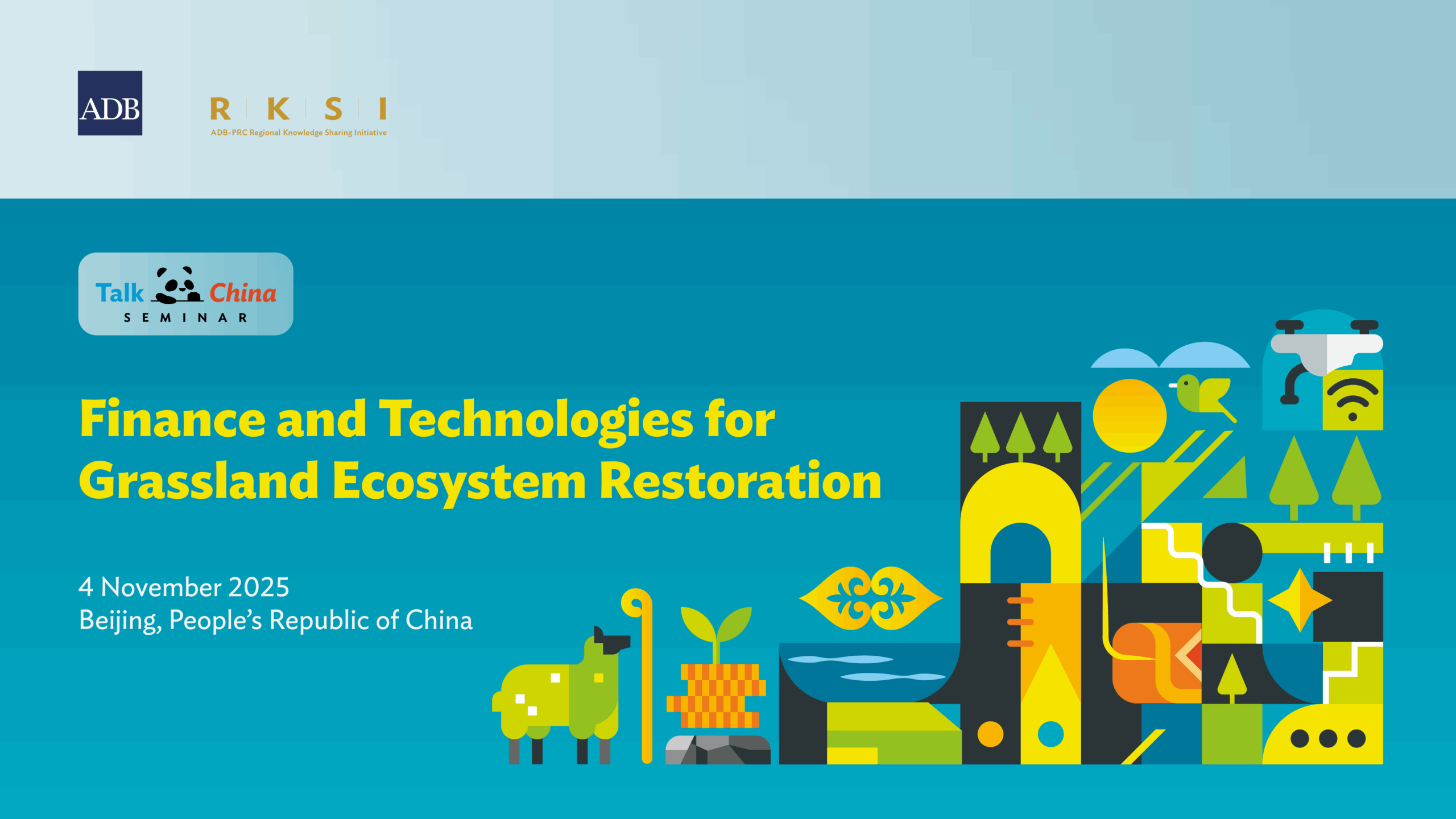
Grasslands are vital ecosystems for both Mongolia and the People’s Republic of China (PRC), supporting biodiversity, climate regulation, and the livelihoods of pastoral communities. However, both countries face increasing pressures from land degradation, desertification, and climate change.
The PRC has implemented a range of large-scale restoration initiatives and ecological compensation schemes, alongside community-based conservation and development practices. These combined top-down and bottom-up approaches have achieved measurable improvements in vegetation cover, ecosystem resilience, and rural incomes. Meanwhile, Mongolia is advancing national strategies through its National Adaptation Plan and investment programs such as the Aimag and Soum Green Regional Economic Development Program, emphasizing grassland ecosystem restoration and sustainable livelihood development for herding communities.
The seminar, held in conjunction with the visit of a high-level Mongolian government delegation to the PRC, aims to deepen knowledge exchange on effective supportive policies, financial mechanisms, and technologies for grassland restoration and sustainable pastoral management. Discussions will draw on lessons from the PRC’s experience at national and subnational levels and explore opportunities for continued knowledge sharing and collaboration.
The delegation visit and seminar are supported by the ADB–PRC Regional Knowledge Sharing Initiative (RKSI), a South–South platform co-hosted by the Ministry of Finance of the PRC and ADB to facilitate knowledge exchange among ADB’s developing member countries. Under RKSI’s umbrella, the Talk China Seminar Series convenes experts and decision-makers to engage on urgent development themes.
Language: Chinese, Mongolian, English (Chinese-Mongolian and Chinese-English interpretation will be provided)
| Date/Time | Session |
|---|---|
| 08:30-08:40 | Welcome remarks Mr. Asif S. Cheema, Country Director, ADB PRC Resident Mission |
| 08:40-08:50 | Sharing I: Green finance to support grassland restoration and management Ms. Yan Wang, Director, Green Finance Division, Research Bureau of the People’s Bank of China (TBC) |
| 08:50-09:00 | Sharing II: Ecological rangeland management Ms. Keyu Bai, Institute of Agricultural Resources and Regional Planning of Chinese Academy of Agricultural Sciences |
| 09:00-09:10 | Sharing III: Ecosystem valuation: eco-compensation mechanisms, gross environment product (GEP), and natural capital Mr. Au Shion Yee, ADB Principal Water Resources Specialist |
| 09:10-09:20 | Sharing IV: Carbon market development and grassland carbon credits Mr. Zhi Cheng, Chief Engineer, Ningxia CDM Service Center |
| 09:20-09:30 | Sharing V: Social capital mobilization for desertification control Ms. Jing Sun, Director of Desertification Prevention and Control, Society of Entrepreneurs and Ecology (SEE) Foundation |
| 09:30-10:30 | Discussions Facilitated by Mr. Aiming Zhou, Deputy Country Director, ADB PRC Resident Mission |
| 10:30-10:40 | Closing remarks
|
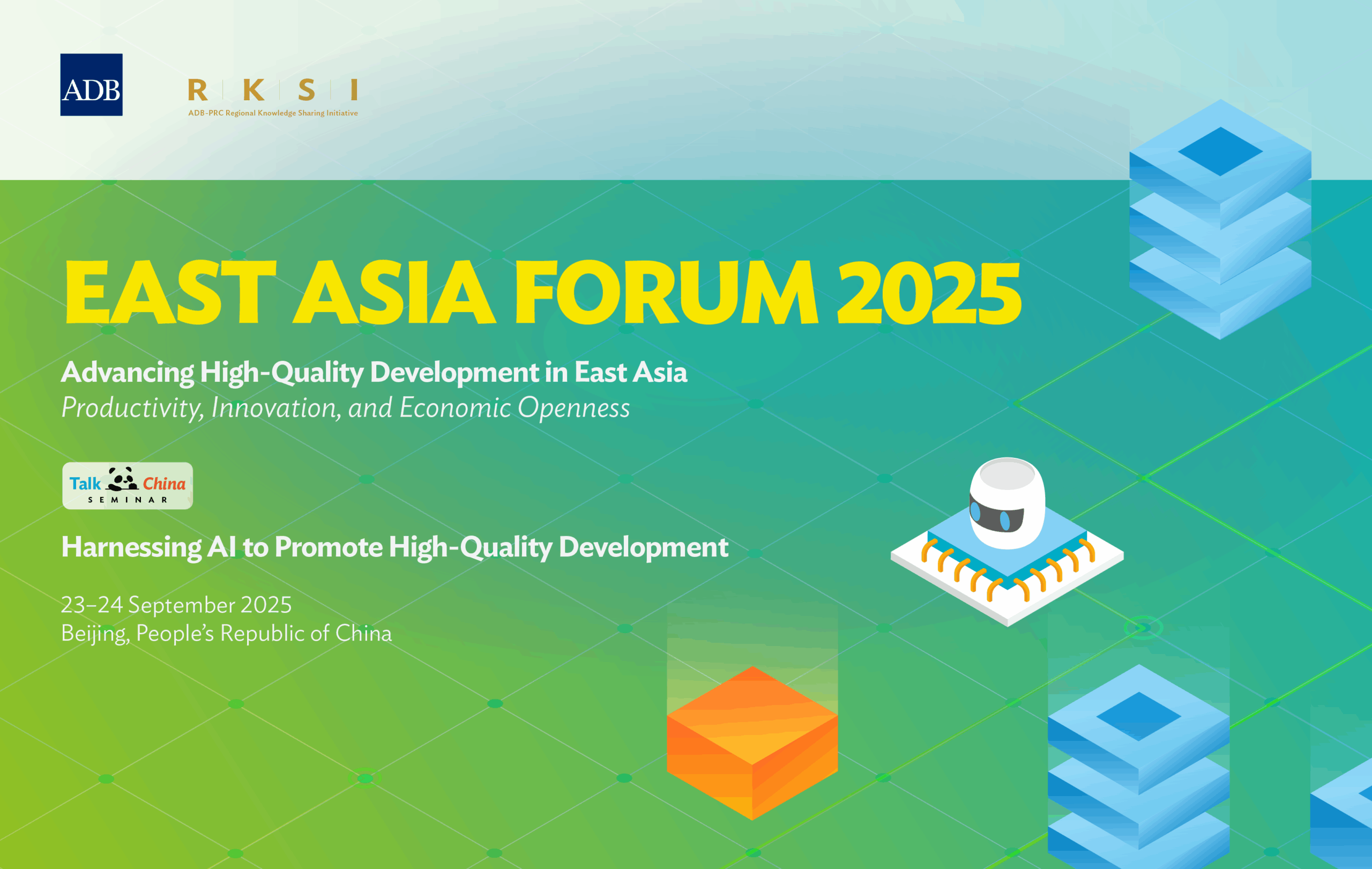

ADB’s East Asia Forum (EAF) is an annual event organized by the East Asia Department (EARD) of the Asian Development Bank (ADB). The forum aims to share lessons from ADB’s operations and knowledge work in East Asia—with special emphasis on the People’s Republic of China (PRC)—with a wider audience. In the spirit of South-South learning, the EAF facilitates the exchange of ideas and practices among key stakeholders in Asia and the Pacific. It is supported by EARD-administered technical assistance and various funding sources, including the People’s Republic of China’s Poverty Reduction and Regional Cooperation Fund (PRCF).
The East Asia Forum 2025, with the theme “Advancing High-Quality Development in East Asia: Productivity, Innovation, and Economic Openness,” aims to:
The ADB–PRC Regional Knowledge Sharing Initiative (RKSI) is a South–South platform jointly established by the Ministry of Finance of the PRC and ADB to promote development knowledge exchange among ADB’s developing member countries. As part of its efforts, RKSI organizes the Talk China Seminar Series, a quarterly event that brings together experts and policymakers to explore pressing development issues. The upcoming session- the third in the series- will focus on harnessing artificial intelligence (AI) for high-quality development, featuring expert discussions and field visits to AI sites in Beijing.
Venue: Kerry Hotel, Beijing
| Date/Time | Session | ||
|---|---|---|---|
| 8:30-9:00 | Registration | ||
| 9:00-9:30 | Welcome Remarks Scott Morris, Vice-President (East and Southeast Asia, and the Pacific), Asian Development Bank (ADB) Distinguished Guest Speaker Liao Min, Vice Minister of Finance, People’s Republic of China | ||
| 9:30-9:35 | Photo Session | ||
| 9:35-9:50 | Setting the Stage: Enhancing Productivity and Openness in East Asia and Beyond Chong-En Bai, Dean of the School of Economics and Management, Tsinghua University | ||
| 9:50-10:20 | Coffee/Tea Break | ||
| 10:20-12:40 | Session 1: Boosting Productivity through Competition and Innovation: Experience from the PRC and Other Countries Presentation 1: Boosting Total Factor Productivity through Competition and Innovation: Experience of the PRC Bert Hofman, National University of Singapore, former Country Director of World Bank, PRC, and former Chief Economist for the World Bank in the East Asia and Pacific region Presentation 2: Australia’s Experience in Boosting Productivity and Competitiveness Catie Bradbear, Assistant Commissioner, Australian Productivity Commission Panel Discussion Moderator: Scott Morris, Vice-President (East and Southeast Asia, and the Pacific), ADB Panelists:
Q and A | ||
| 12:40-2:30 | Lunch break | ||
| 2:30-4:30 | Session 2: Expanding Economic Openness and Service Sector Liberalization in the PRC and Experience from Other Countries Presentation 1: Shamshad Akhtar, Chairperson of Board of Directors for Pakistan Stock Exchange; former Minister of Finance, Government of Pakistan; former Executive Secretary of UNESCAP Presentation 2: Opening the PRC’s Services Industry for Innovative and Shared Development Hildegunn Kyvik Nordås, Visiting Professor, Örebro University, Sweden; Senior Associate, Council on Economic Policies, Switzerland Panel Discussion Moderator: Justine Diokno-Sicat, Alternate Executive Director, ADB Panelists:
Q and A | ||
| 4:30-4:45 | Closing Remarks Shu Zhan, Alternate Executive Director, ADB | ||
| 4:45 onwards | Networking Reception |
| Date/Time | Session | ||
|---|---|---|---|
| 9:00-9:10 | Opening Remarks Muhammad Ehsan Khan, Director General, East Asia Department, ADB Zhan Shu, Alternate Executive Director, ADB | ||
| 9:10-10:10 | Session 1: What Experiences from the PRC Can be Learned and Replicated in the Region Presentation: Promoting AI Applications for High-Quality Development in the PRC Tongning Wu, Deputy Director Artificial Intelligence Research Institute China Academy of Information and Communications Technology Panel Discussion: Moderator: Aiming Zhou, Deputy Country Director, ADB PRC Resident Mission Panelists
| ||
| 10:10-10:30 | Tea Break | ||
| 10:30-11:30 | Session 2: How ADB Can Support DMCs with AI Application to Promote High-Quality Development Presentation: ADB’s Role in Promoting AI Application in the Region Albert Park, Chief Economist and Director General, Economic Research and Development Impact Department, ADB Panel Discussion: Moderator: Bobur Alimov, Advisor, EARD, ADB Panelists:
Q and A | ||
| 11:30-13:00 | Lunch break | ||
| 13:00-14:00 | Departure from the Kerry Hotel for site visit | ||
| 14:00-16:30 | Site visit: Beijing Innovation Center of Humanoid Robotics, Beijing High-level Autonomous Driving Demonstration (BJHAD) Zone Innovation and Operation Center, to experience the WeRide Autonomous Bus. | ||
| 16:30-17:30 | Return to the hotel |



© 2026 Regional Knowledge Sharing Initiative. The views expressed on this website are those of the authors and presenters and do not necessarily reflect the views and policies of the Asian Development Bank (ADB), its Board of Governors, or the governments they represent. ADB does not guarantee the accuracy of the data in any documents and materials posted on this website and accepts no responsibility for any consequence of their use. By making any designation of or reference to a particular territory or geographic area, or by using the term “country” in any documents posted on this website, ADB does not intend to make any judgments as to the legal or other status of any territory or area.
